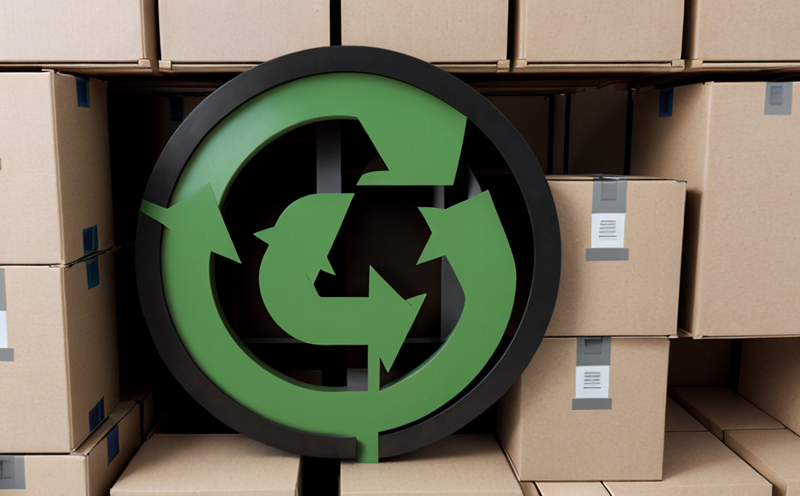ISO 14067 Carbon Footprint Assessment of Recycling Operations
The ISO 14067 standard provides a framework for quantifying and reporting the carbon footprint of products, processes, and organizations. This service focuses specifically on the assessment of recycling operations, ensuring that stakeholders can meet regulatory requirements and contribute to sustainable practices.
Recycling plays a crucial role in reducing waste sent to landfills, conserving natural resources, and decreasing greenhouse gas emissions. Understanding the carbon footprint of recycling processes is vital for organizations committed to sustainability. By adopting ISO 14067 standards, businesses can accurately measure their environmental impact, identify areas for improvement, and communicate transparently about their efforts.
The assessment process involves collecting data on energy consumption, raw material sourcing, transportation, and other relevant factors throughout the recycling lifecycle. This information is then used to calculate the direct and indirect CO2 emissions associated with each stage of the operation.
Our team of experts uses advanced methodologies and state-of-the-art technology to ensure accurate measurements. We collaborate closely with clients to tailor our approach to their specific needs, ensuring that all relevant aspects are considered during the assessment.
The results of an ISO 14067 carbon footprint assessment provide valuable insights into a recycling operation's environmental performance. These findings can be used to develop strategies for reducing emissions, improving resource efficiency, and enhancing overall sustainability.
By adhering to international standards such as ISO 14067, organizations demonstrate their commitment to responsible business practices and contribute positively to the circular economy. This not only fosters trust among stakeholders but also supports compliance with increasingly stringent environmental regulations.
Our service offers more than just data; it provides actionable recommendations based on rigorous analysis. Armed with this information, clients can make informed decisions that drive positive change within their organizations while aligning with global sustainability goals.
Scope and Methodology
| Aspect | Description |
|---|---|
| Data Collection | Collection of detailed information on energy usage, raw material inputs, transportation distances, etc. |
| Calculation | Use of ISO 14067 guidelines to calculate the carbon footprint at various stages of recycling operations. |
| Tools and Techniques | Description |
| Emission Factors Database | A comprehensive database containing emission factors for different types of materials and processes. |
| Life Cycle Assessment Software | Advanced software tools that help analyze the entire lifecycle of a product or process. |
The scope includes all phases of recycling operations, from raw material acquisition to final disposal. Our methodology adheres strictly to ISO 14067 guidelines, ensuring accuracy and reliability in our assessments.
By leveraging these tools and techniques, we can provide a thorough understanding of the environmental impact associated with each stage of the recycling process. This allows us to identify opportunities for improvement and recommend best practices that will lead to reduced emissions and enhanced sustainability.
Benefits
Conducting an ISO 14067 carbon footprint assessment of recycling operations offers numerous advantages:
- Improved Environmental Performance: Accurate measurement and reporting help identify areas for improvement and promote continuous enhancement.
- Enhanced Compliance: Ensures adherence to relevant environmental regulations, thereby avoiding penalties and reputational damage.
- Increased Transparency: Provides stakeholders with clear and reliable information about an organization's environmental impact.
- Competitive Advantage: Demonstrates a commitment to sustainability, which can enhance brand reputation and customer trust.
- Cost Savings: Identifies inefficiencies in processes that could be addressed through optimization efforts leading to cost savings.
- Promotion of Innovation: Encourages the development of new technologies and practices aimed at reducing carbon footprints further.
The assessment also helps organizations set clear targets for reducing their environmental impact, contributing to a more sustainable future. With this knowledge in hand, businesses can implement strategies that not only benefit the environment but also contribute positively to social and economic aspects of society.
Customer Impact and Satisfaction
The implementation of ISO 14067 carbon footprint assessments has a direct positive impact on customers by fostering trust, enhancing reputation, and improving service quality. Organizations that adopt these practices demonstrate their dedication to environmental stewardship, which resonates well with environmentally conscious consumers.
By providing transparent and verifiable data regarding the carbon footprint of their products or services, businesses can build long-term relationships based on mutual respect and shared values. This approach not only meets but exceeds customer expectations, ensuring high levels of satisfaction among all stakeholders involved.
The assessment process itself contributes to increased customer satisfaction by offering actionable insights that enable continuous improvement in environmental performance. As a result, customers receive more sustainable offerings aligned with current trends towards green initiatives globally.
Furthermore, participating in such assessments can position organizations as leaders within their industries, attracting new business opportunities and partnerships based on shared sustainability goals.





